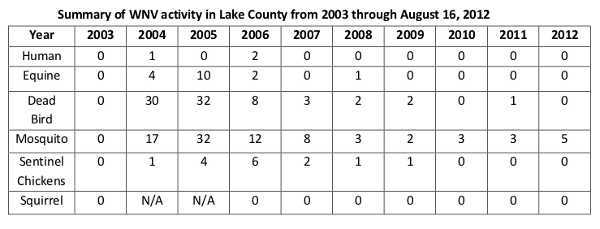LAKEPORT, Calif. – A Lakeport man convicted of stabbing his neighbor to death also is the first person to be convicted of using information from the state’s sex offender registration Web site in the commission of a crime.
Ivan Garcia Oliver, 34, was convicted of first-degree murder, burglary and special allegations including causing great bodily injury and personally using a deadly weapon for the Nov. 20, 2007, stabbing of 67-year-old Michael Dodele at Western Hills Mobile Home Park outside of Lakeport.
There also was another special allegation the jury found to be true – that Oliver had used information from the Megan’s Law sex offender registration Web site to commit a felony.
On Thursday, the California Attorney General’s Office – which administers California’s Megan’s Law Web site, www.meganslaw.ca.gov – confirmed to Lake County News that Oliver’s conviction on the special allegation involving the Megan’s Law information was a first in the state.
When Oliver is sentenced on Wednesday, Aug. 29, he faces 32 years to life in prison, according to Chief Deputy District Attorney Richard Hinchcliff.
“Vigilantism based on the Megan’s Law Web site is a really bad thing for the public,” Hinchcliff said Thursday after Oliver’s guilty verdicts had been returned.
Oliver’s defense attorney, Stephen Carter, said he plans to file an appeal of the conviction at the Aug. 29 sentencing.
Law establishes Web site
California – the first state in the nation to have a sex offender registration law – has required registration of convicted sex offenders since 1947, according to the California Attorney General’s Office. The agency reported that California has the most registered sex offenders of any state.
In 1996 California enacted Megan’s Law, named for 7-year-old Megan Kanka. The first grader was raped and murdered in 1994 by a known child molester who had moved into the New Jersey neighborhood where she lived with her family.
At that time, there were no requirements to notify families of the presence of sex offenders in their communities. Since then, various forms of Megan’s Law have taken root in every state.
AB 488 – authored by Assemblywoman Nicole Parra (D-Hanford) and sponsored by then-California Attorney General Bill Lockyer – authorized the Megan’s Law Web site listing of the state’s most serious sex offenders.
The bill was signed in September 2004; as a result, the new Penal Code Section 290.46 required the California Department of Justice to create the state’s Megan’s Law Web site on or before July 1, 2005.
In December 2004, Lockyer unveiled the new site six months ahead of the deadline, with 63,000 sex offenders listed, as well as the home address of the most serious offenders, which then numbered 33,500.
In addition to establishing the Web site, Penal Code Section 290.46 also set forth penalties for misuse of the site.
It states that any person convicted of using the information to commit a misdemeanor can face fines of between $10,000 and $50,000; for a felony, the penalty is five years in prison.
The Web site carries a disclaimer on the use of the information – which it warns may be incomplete or incorrect, with the potential for mistaken identities – and requires users to click on a box to acknowledge the disclaimer before moving into the main part of the site.
Once in the site, users can search by name, address, city, zip code and county, and proximity to parks and schools.
Misinterpreting information
Hinchcliff had presented evidence during the trial that, several days before Dodele was fatally stabbed more than 65 times, Oliver had gotten a printout of the Megan’s Law sex offender registration Web site from Lacey Kou, manager of the Western Hills Mobile Home Park.
Oliver had said on the stand that he had become fearful after seeing a stranger near the park calling to his son.
So he went to speak to Kou, who pulled up the Web site – which Oliver said he had never seen before – to determine if there were any sex offenders in the neighborhood. Dodele came up in the search.
Dodele’s entry included the wording of PC 288A(C), forced oral copulation. The statute reads: “Any person who commits an act of oral copulation upon a minor who is 14 years of age or older, when the act is accomplished against the victim's will by means of force, violence, duress, menace, or fear of immediate and unlawful bodily injury on the victim or another person, shall be punished by imprisonment in the state prison for 6, 8, or 10 years.”
For someone not aware of the circumstances of Dodele’s conviction, it may have appeared that he had been convicted of molesting a child, however, he was registered for a 1980s rape of an adult female victim, who he had threatened with a knife. He also had several previous convictions for rape and attempted rape.
Oliver testified that he had not seen the conviction’s wording on the Web site, and claimed it was Kou who told him, incorrectly, that Dodele was a child molester.
Oliver used the printout – which he said on the stand did not include Dodele’s specific conviction information – to warn neighbors about Dodele, who was killed inside his trailer. During the trial that printout was presented as an exhibit.
At trial Oliver said when he spoke to neighbors about his concerns, they didn’t seem to care.
His girlfriend, Cathleen Ferran, also testified to telling Oliver that she didn’t think the listing was accurate, and that the matter needed to be left up to law enforcement.
Following Dodele’s fatal stabbing, Oliver told detectives that Dodele touched his son, an allegation he had never shared with his girlfriend or anyone else. He also made statements about his hatred of child molesters.
Hinchcliff said the Web site’s purpose is to assist the public in figuring out who their neighbors are.
He suggested that if more cases of vigilantism occurred, “the public is going to lose the Megan’s Law Web site.”
Email Elizabeth Larson at This email address is being protected from spambots. You need JavaScript enabled to view it. .












